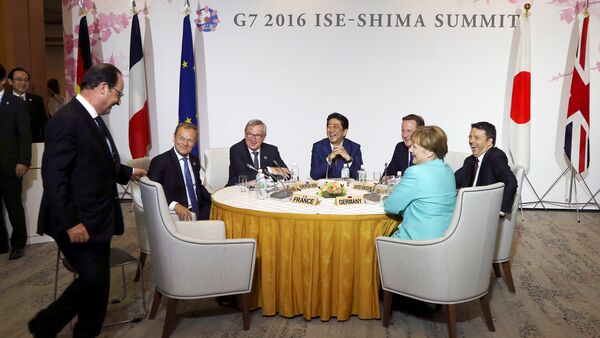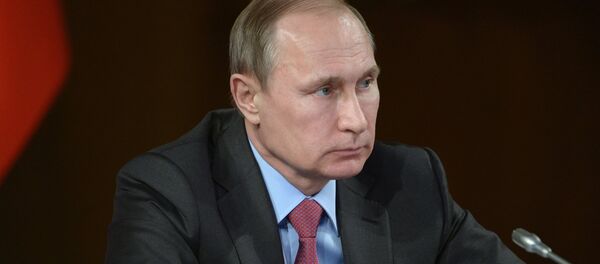The G7 leaders have stressed that sanctions against Russia will remain in place until full implementation of the Minsk peace agreement on Ukraine, pointing out, however, that maintaining constant dialogue with Russia is crucial to the peaceful resolution of the crisis.
"We stand united in our conviction that the conflict in Ukraine can only be solved by diplomatic means and in full respect for international law, especially the legal obligation to respect Ukraine’s sovereignty, territorial integrity and independence. We reiterate our condemnation of the illegal annexation of the Crimean peninsula by Russia and reaffirm our policy of its non-recognition and sanctions against those involved," the G7 leaders said.
They stressed the importance of all sides adhering to the Minsk peace agreement on Ukraine.
"We recall that the duration of sanctions is clearly linked to Russia’s complete implementation of the Minsk agreements and respect for Ukraine’s sovereignty. Sanctions can be rolled back when Russia meets these commitments. However, we also stand ready to take further restrictive measures in order to increase cost on Russia should its actions so require," the G7 leaders stressed.
They pointed out, however, that maintaining dialogue with Russia is crucial to the resolution of the internal crisis in Ukraine.
"We recognize the importance of maintaining dialogue with Russia in order to ensure it abides by the commitments it has made as well as international law and to reach a comprehensive, sustainable and peaceful solution to the crisis," the G7 leaders said.
Leaders of G7 club of industrialized countries — Britain, Italy, Germany, France, Canada, Japan and the United States — came together on Thursday for a two-day summit in Japan's Ise Shima. The meeting traditionally deals with global economic issues.
Last week, EU foreign policy chief Federica Mogherini said in an interview with German newspaper Die Welt that she expected that European sanctions against Russia would be extended after July.
Earlier, President of the European Council Donald Tusk stated that EU economic sanctions against Russia will remain in place until the Minsk agreement on Ukraine is implemented in full.
The United States, the EU and some of their allies have imposed several rounds of sanctions targeting key sectors of the Russian economy, as well as a number of individuals and entities, over Crimea's reunification with Russia and Moscow's alleged interference in the conflict between Kiev and independence militia in eastern Ukraine.
Russia has repeatedly refuted the allegations, warning that the Western sanctions are counterproductive. In response to the restrictive measures, Russia has imposed a food embargo on some products originating in countries that have targeted it with sanctions.


